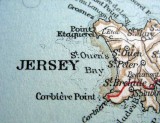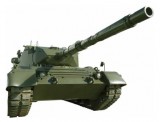A childhood account of wartime Jersey can offer a refreshing perspective for lessons on WWII, says Dave Lewis...
 When teaching children about World War II, it’s tempting to go down the tried and tested route of investigating what life was like for an evacuee. However, there are plenty of other ways to examine the conflict, and even the dog-eared QCA scheme of work will provide a flexible enough framework with which to do this. For instance, I have found that learning about the occupation of the Channel Islands offers children a different perspective on WWII, and can provoke a great deal of useful questioning. Many will not realise that the Chanel Islands were invaded during the war, so a good way to introduce this revelation to your class is with the written recollections of Reg Langlois, a child living on Jersey at the time. Reg’s family were farmers and he was four years old when the island was invaded. You can find copies of his vivid memoirs at http://www.wartimememories.co.uk/channelislands and I am going to use his account of wartime Jersey as the inspiration for a series of challenging activities.
When teaching children about World War II, it’s tempting to go down the tried and tested route of investigating what life was like for an evacuee. However, there are plenty of other ways to examine the conflict, and even the dog-eared QCA scheme of work will provide a flexible enough framework with which to do this. For instance, I have found that learning about the occupation of the Channel Islands offers children a different perspective on WWII, and can provoke a great deal of useful questioning. Many will not realise that the Chanel Islands were invaded during the war, so a good way to introduce this revelation to your class is with the written recollections of Reg Langlois, a child living on Jersey at the time. Reg’s family were farmers and he was four years old when the island was invaded. You can find copies of his vivid memoirs at http://www.wartimememories.co.uk/channelislands and I am going to use his account of wartime Jersey as the inspiration for a series of challenging activities.
 PSHE – How would the children respond to an invasion?
PSHE – How would the children respond to an invasion?
On the 30th June, 1940, the German army began its occupation of the Channel Islands. Reg Langlois could sense the tension of his family and friends, but was unsure about what was going to happen. Having read about his sense of foreboding ahead of the invasion, you can ask pupils to think about how they might react to fear of the unknown.
Find information about the occupation of France and other European countries and share this with the class, together with any pictures you can source. Discuss what happened to adults in those countries and ask the children to think what it would be like if they were in a similar situation.
Now tell the class to imagine that an invasion is imminent. The children should write a diary covering the day before the incursion, the day of the invasion itself, and the following day. As they progress from unknowing apprehension to the aftermath, ask pupils to consider their personal worries and what they think might happen to families and friends.
To differentiate, you could supplement the prompts with details of the jobs that family or friends did. Using occupations such as policeman, farmer, taxi driver etc., ask the children to consider whether the occupation would have had any influence on what might happen to people in these professions.
 D&T – Make presents from scrap
D&T – Make presents from scrap
Reg tells of making a jewellery box out of old postcards and helping his dad construct a means of transport from old tyres and mechanical parts. This is a great stimulus for a D&T lesson where you could ask the children to imagine it is their best friend’s birthday but, due to a scarcity of goods, they must make a present out of junk.
Older children could try to emulate Reg and his father and make a model vehicle out of junk. It would be particularly good if the gifts were actually exchanged at the end of the project and the thoughts of the recipient fed back to the presenter, perhaps by way of a thank you letter.
 Thinking skills – Form a plan of attack
Thinking skills – Form a plan of attack
The Germans were fearful the British would use the Channel Islands as the staging point for an invasion of Europe and so wanted to occupy the territories themselves. However, Churchill didn’t believe they provided any tactical advantage, and decided to leave them undefended. To help children understand the motives behind both sides’ decisions, you can set up an activity that asks them to develop strategies of their own.
Either as a whole class or in pairs, the children adopt the role of two opposing forces. Each force has its own base, which are separated by a group of islands. A set of ‘chance’ cards set the terrain for the countries and also for the islands.
The children have to decide what would be the best way to invade the opposing country and choose whether or not to use the islands. They need to suggest the approach they would take and explain their reasoning. At different stages of the activity, the teacher can add in ‘problem’ cards such as ‘Invasion expected at point X, reinforcements in place’ or ‘Storms forecast’.
The objective of the activity is to use available evidence to inform decisions. The teacher should award points according to the viability of children’s suggestions, and the team with the most points at the end of the session wins.
Finish with a plenary showing the similarities in the geography of the English Channel and their activity, talking about Britain’s strategy in leaving the Channel Islands undefended and Germany’s reasons for occupation.
 Speaking and listening – Communicate in secret
Speaking and listening – Communicate in secret
The Germans were very wary of information being passed amongst the people of the Channel Islands and on to the British. They clamped down hard on anyone caught communicating by forbidden means. This activity gives children another way to show their initiative by both devising ways of communicating in secret and trying to detect hidden messages.
Introduce the activity using the relevant text from Reg’s story, reinforced by examples of how messages were passed during the war. The children should be divided up into three groups, one group communicating the information, a second receiving the information and the third trying to detect any communications. The teacher should give the first group pieces of information of various sizes and ask them to communicate this to the second group. The information needs to be spread amongst all members of each group. They’ll have to be imaginative if they are to pass on their top secret messages without the ever watchfall third group spotting what they’re up to.
This activity allows the development of codes and communication equipment, such as semaphore or message drops.
 Is it right to steal food?
Is it right to steal food?
During the war, food was scarce and Reg’s story tells of the lack of certain commodities and how the islanders overcame this. The BBC article tells of great hardship and how the population came close to starvation towards the end of the war.
In this activity, the children should be given details of the rations available to families in the Channel Islands and be encouraged to think of how they might be able to supplement their diets from natural, or illicit, sources.
Differentiation could involve looking more closely at how children could obtain more food. Introduce a PSHE element that considers the ethics of stealing food when comparing criminal activity to needs. Again, Reg’s story details theft of food from the Germans and this could be added as an extra point for discussion as to whether it is as bad to steal from an enemy.
Further information about the Channel Islands occupation can be found at http://news.bbc.co.uk/1/hi/uk/4528907.stm
Join the tribe with a stone age forest school
Ace-Classroom-Support
Boosting children’s self esteem
Ace-Classroom-Support
